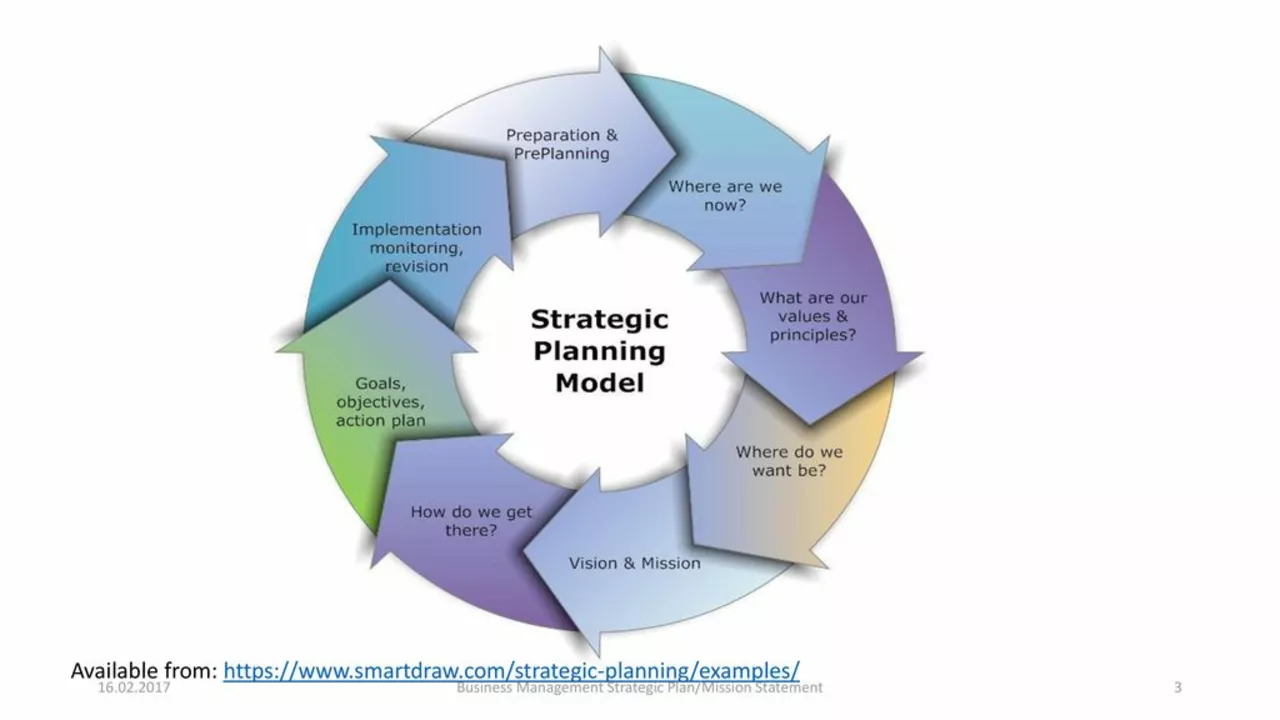Understanding the Concept of a Business Plan
Before diving into the mission of a business plan, it's important to grasp the concept of a business plan itself. A business plan is a comprehensive document that outlines the objectives of a business and the strategies to achieve those objectives. It's a roadmap for guiding the business from its inception to its anticipated growth. It's not a static document, but rather a living one that should be updated as the business evolves and as the market changes.
The Core Mission of a Business Plan
The core mission of a business plan is to provide a detailed strategy that will guide a business towards its goals. This strategy includes everything from the business's vision and mission statements, to its marketing and financial strategies, and even its human resources plan. The mission of a business plan is to serve as a guide for business owners, helping them make informed decisions that align with their business's objectives.
Setting a Clear Vision and Mission
A crucial part of a business plan is the articulation of the business's vision and mission. The vision statement paints a picture of what the business wants to achieve in the future, while the mission statement defines the business's purpose and its primary objectives. Both the vision and mission statements guide all decisions made within the business.
Outlining the Business Structure
The business plan also outlines the organizational structure of the business. This includes the roles and responsibilities of the management team, the organizational hierarchy, and the decision-making processes. By detailing the business structure, the business plan sets a blueprint for how the company will be run.
Developing a Marketing Strategy
One of the key components of a business plan is the marketing strategy. This section outlines how the business will attract and retain customers. It includes details about the target audience, the unique selling proposition, the pricing strategy, and the promotional tactics. The marketing strategy is instrumental in helping a business increase its market share and boost its revenues.
Planning for Financial Management
A business plan also includes a comprehensive financial plan. This section of the business plan outlines the business's financial projections, including sales forecasts, income statements, balance sheets, and cash flow statements. The financial plan helps business owners manage their finances effectively and make informed financial decisions.
Identifying Risks and Opportunities
A good business plan also identifies potential risks and opportunities for the business. This involves conducting a SWOT analysis (Strengths, Weaknesses, Opportunities, and Threats) to understand the business's internal and external environment. This analysis helps business owners prepare for potential challenges and take advantage of opportunities that may arise.
Devising an Operational Plan
The operational plan is another important component of a business plan. This section outlines the day-to-day operations of the business, including the production process, the supply chain management, and the customer service strategies. The operational plan helps ensure the smooth running of the business.
Creating a Human Resource Strategy
The business plan also includes a human resource strategy. This section outlines the approach to hiring, training, and retaining employees. It also includes the company culture and the employee benefits. The human resource strategy is crucial in ensuring that the business has the right people in the right roles.
Planning for Growth and Sustainability
Finally, the business plan looks at the future. It outlines how the business plans to grow and sustain itself in the long term. This includes strategies for scaling up, plans for new products or services, and strategies for sustainable practices. The growth and sustainability section ensures that the business is prepared for the future.
